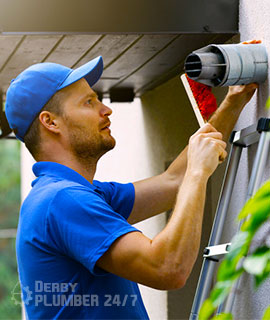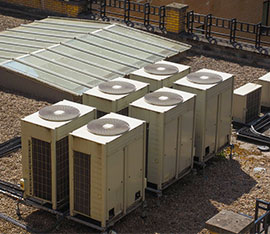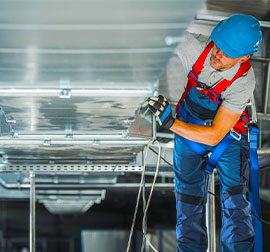Table of Contents
HVAC & Central Heating Engineers Derby
Why is Central Heating Engineer System Important?
Central heating engineer system is important in maintaining a comfortable environment in the home. The central heating engineer system provides heat to every room in the house, whether it is through radiators or pipes. It also offers an economical and environmentally friendly solution for heating homes.
The central heating engineer system is important because it helps regulate the temperature in your home. It also helps you save money on electricity bills.
If you are looking for a system that will ensure that your home is heated evenly, then central heating is the best option for you. It consists of a boiler and radiators.
Central heating systems are very important to homes because they provide heat to all parts of the house. They are also efficient and require less maintenance than other heating systems.
The central heating system is the most efficient and cost-effective way of heating a building.
Central heating systems are typically installed in larger buildings with more than one room, such as offices, schools, hospitals, and hotels. They are also used in homes that have three or more bedrooms.
How to Choose a Good Central Heating Engineer System?
Central heating systems are an important part of a home’s design and function. They provide warmth and comfort to the family and are an integral part of any home.
There are many different types of central heating systems available in the market today, and it can be difficult to choose which one is best for you. This article will guide you through the process of choosing a good central heating engineer system.
Central heating systems are not just for winter. They can be installed in any season to provide a consistent temperature throughout the year.
The best central heating system installers can help you find the right boiler for your home and make sure it is installed safely and efficiently.
Choosing a central heating system is not an easy task. You need to consider many factors before making the decision. Whether you are looking for a gas boiler installation or a boiler installation, it is important to do your research on the type of central heating system that will work best for you.

What are the Different Types of Central Heating Engineer System?
When it comes to maintaining a home, there are many different things that need to be taken care of. One of the most important is making sure that the heating system is running properly.
There are many different types of heating systems out there and so it can be hard to decide which one will work best for you. The first thing that you need to do is figure out which type of fuel you want your boiler to run on.
The natural gas boiler installation process can be a little bit more complicated than an oil boiler installation, but it’s also more cost-effective in the long run because natural gas prices are lower than oil prices.
Central heating systems can be broadly classified as either a gas boiler or an oil boiler.
A gas boiler system is more expensive to install, but it is more efficient and uses less energy than an oil boiler system. Gas boilers also have a lower life-cycle cost because they require less maintenance and repair than an oil boiler system. Gas boilers are more efficient and use less energy than oil boilers. Oil boilers are cheaper to install and maintain than gas boilers.
The most popular central heating systems are natural gas and oil. Natural gas is cheaper and more efficient than oil, but it’s not as common as an option. Oil is more expensive, but it’s the only type of fuel that can work with a boiler that doesn’t have a heat exchanger. Oil boilers are also more reliable because they produce a higher heat output than gas boilers.
Oil-fired boilers are less efficient than natural gas-fired boilers because they release more carbon dioxide into the atmosphere during combustion. They also require a lot of maintenance to ensure that they don’t run out of oil or malfunction.
Natural gas is cheaper, economic, cleaner, and easier to maintain than oil. It’s also more efficient, which means you’ll use less energy while still getting the same amount of heat in your house.


Frequently Asked Questions About HVAC and Central Heating in Derby
How Central Heating Works and The Parts of a Central Heating Engineer System?
A central heating system is a type of heating system that uses a furnace, boiler, or heat pump to distribute heated water or steam throughout a building. Central heating systems are used in residential and commercial buildings.
The parts of a central heating engineer system are: the boiler, the radiators, the pipes, and the thermostat.
Boilers use heat from gas or oil to generate hot water which is then piped through radiators and into your home’s rooms. The thermostat controls how much heat is generated by the boiler which in turn controls how hot your home gets.
Central heating systems work by transferring heat from the boiler to the radiators in your home. There are three main parts of a central heating system: the boiler, the radiator and the thermostat.
The boiler is what generates heat for your home. It heats up water until it reaches a high temperature, then pumps it through pipes that lead to radiators throughout your home. The radiator is what transfers heat from the heated water to your rooms and keeps them warm. A thermostat is used to control how much heat is pumped through your home and when it turns on or off.
A central heating system is a type of heating system that heats the air in the entire building. It’s usually used in large buildings such as office buildings, schools, and hospitals, but it can also be installed in smaller homes.
A central heating system consists of three main parts: a boiler, pipes, and radiators. The boiler supplies hot water to the pipes through which it circulates. The radiators then distribute heat throughout the building by releasing heated water into them.
Central heating is a type of heating system that warms up rooms in a building or house by using the heat energy from water, oil, or gas.
A central heating engineer system includes a boiler and radiators. The boiler heats up water to produce hot water and steam that travels through pipes to the radiators. The radiators then release heat into the rooms of the building or house.
Get A Free Estimate
We are more than happy to give advice on which solution is most suitable for your needs, depending on your Plumbing Serviecs. Why not ask us to view your property and discuss the various options with you now. Our advice is free!


